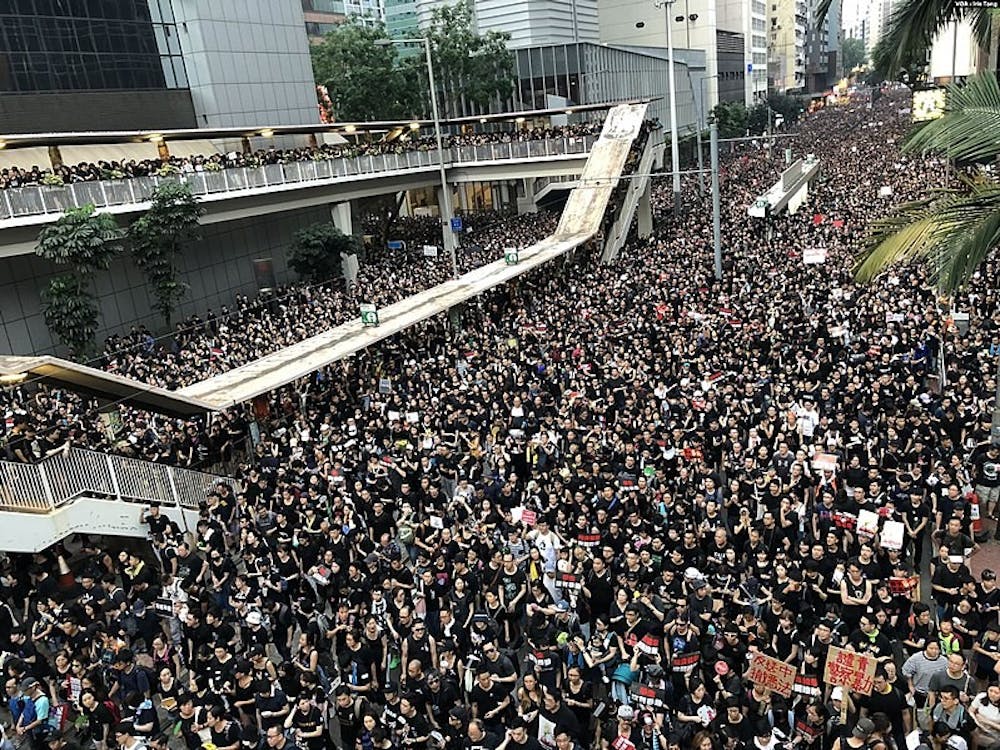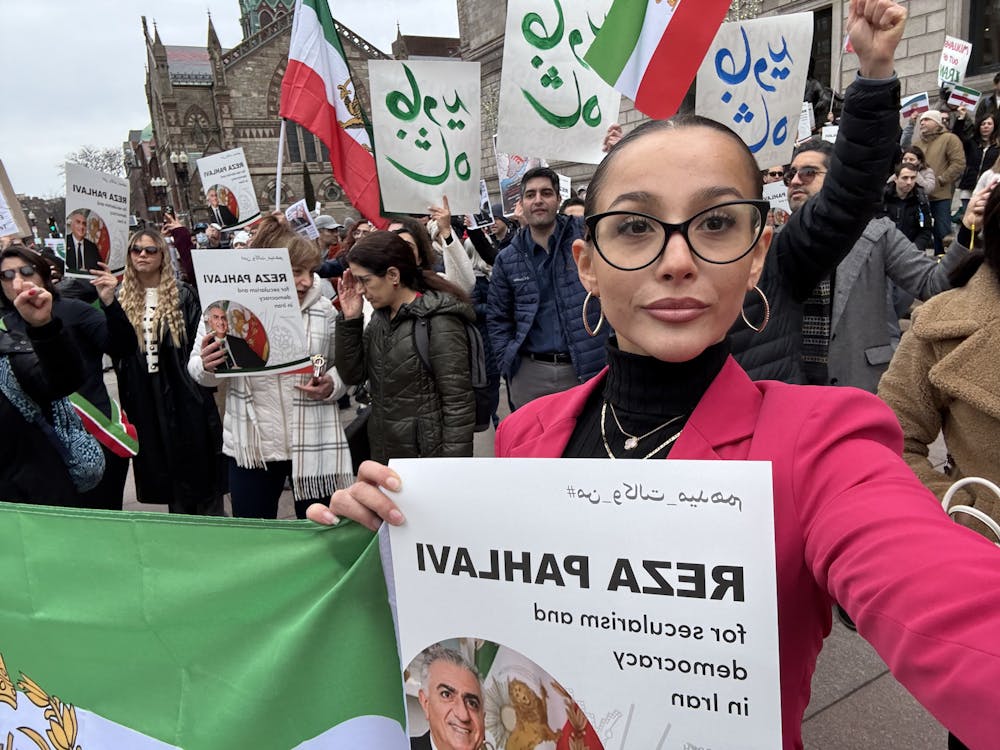As long as the erosion of human rights in Hong Kong continue, the region’s already 16-week long summer of discontent will go on well into the fall. Approaching October 1 — the 70th anniversary of the founding of the People’s Republic of China — Hong Kong authorities face mounting pressure from Beijing to utilize stronger state force to quell unrest. Last Tuesday, Hong Kong student activist Joshua Wong testified at a U.S. Congressional hearing, noting that the “stakes have never been higher.’’ As crackdowns on the city’s autonomy and civil liberties continue, Hopkins students must stand in solidarity with the students of Hong Kong.
In 2014, Hong Kong students conducted sit-in street protests against Beijing’s proposed reforms against universal suffrage. Although the Umbrella Movement ended without government concessions, it instead triggered stricter rhetoric from mainland and pro-Beijing officials on Chinese patriotism, rule of law and limitations on academic freedoms and civil liberties. Rhetoric became reality: booksellers are abducted to Beijing. Journalists are blacklisted. Political candidates are politically screened. Against this backdrop of undermined civil rights, the previously proposed Extradition Bill would legally allow anyone in Hong Kong to be extradited and detained in mainland China, a country without an independent judiciary. Though the Extradition Bill — against which the 2019 Hong Kong protests were initially conducted — has since been withdrawn, continued fears of the erosion of the “one country, two systems framework”, as well as Hong Kong’s autonomy and freedoms as enshrined in the Basic Law and 1984 Sino-British Joint Declaration, prompt continued protest.
Protesters are met with police brutality. Since the start of mass protests in June, more than 1,300 people have been arrested. A recent Amnesty International report documents excessive force during arrest, torture or other inhuman treatment during detention, body searches, delayed access to medical care and council, and arbitrary arrests. By early August, Hong Kong police had fired over 1,800 rounds of tear gas at protestors. This took place in subway stations, malls, residential areas and directly at protestors. And Americans have a direct hand in this brutality. A portion of the crowd-control equipment employed by the Hong Kong Police Force comes from American companies, including Nonlethal Technologies, a Pennsylvania-based company.
The U.S. is well positioned to address its involvement. Earlier this month, a bipartisan House effort introduced the PROTECT Hong Kong Act, which would prohibit U.S. companies from exporting non-lethal crowd control items and defense articles to the Hong Kong Police Force. On September 25th, the bipartisan Hong Kong Human Rights and Democracy Act of 2019 went through a Senate Foreign Relations Hearing. The bill calls for annual evaluations as to whether Hong Kong still meets the conditions — which include state autonomy and civil freedoms — outlined in the 1992 U.S.-Hong Kong Policy Act, which grants Hong Kong its special economic status with the U.S.. The 2019 bill would also deny entry visas and impose sanctions on individuals responsible for human rights abuses in Hong Kong. As Hong Kong’s second largest trading partner, the Act would send a clear signal to China on American human rights policy in all future trade negotiations. The US must pass both acts to solidify American solidarity with democracy in Hong Kong.
Opposition to American support is clear. Critics draw parallels to American involvement in Vietnam and Iraq, stating that passing the Hong Kong Acts would be another case of American extraterritoriality based on false claims. Some Hong Kong business leaders ask American lawmakers to keep politics out of trade. Perhaps most pointedly, pro-Beijing pundits underscore the hypocrisy of American criticism of Chinese human rights violations, when the American government itself has “turned a blind eye to the power abuse and violent law enforcement of police at home”.
However, Hong Kong activists have long called for American solidarity, not for foreign interference or Hong Kong independence, but as a “plea for universal human rights” and “democracy”. Unlike Vietnam and Iraq, passage of the Hong Kong Acts would not involve military deployment, and is built upon the consensus of facts by the international community. When Beijing politicizes the sanctity of free markets and academic freedom, they inherently force their politics into all areas of Hong Kong life.
As Hopkins students, we don’t need Beijing to remind us about police brutality in Baltimore. But unlike in China, we can freely criticize and protest against our domestic social injustices. In opposing police brutality in Baltimore, we must oppose police brutality within our country and everywhere else around the world. Only our silence would make us truly hypocrites.
The capacity for the people of Hong Kong to participate in normal civic life is decreasing by the hour. Ask your local representative to support the PROTECT Hong Kong Act and Hong Kong Human Rights and Democracy Act of 2019. The students of Hong Kong are asking for our answer. The least we can do is stand in solidarity as students.
Bonnie Jin is a junior majoring in International Studies from Boston, Massachusetts. A Taiwanese-American, she will attend the Hopkins-Nanjing Center next fall.





